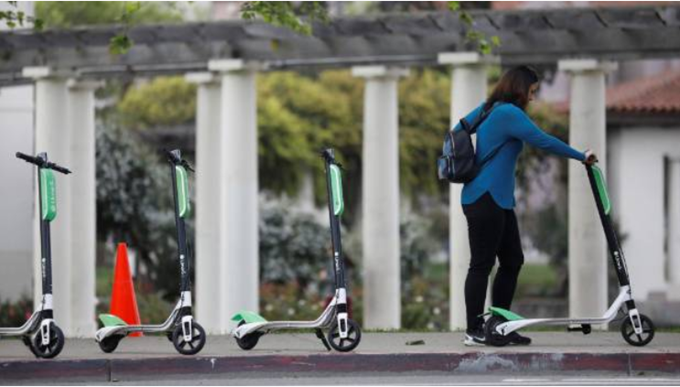UPDATED 3 November | Council looks at regulatory framework and safety concerns
Auckland Council’s community and social policy team is looking at the regulatory framework for e-scooters and the options that can be considered to mitigate any safety issues or concerns.
The council is working with Auckland Transport, NZTA, Ministry of Transport and Police to bring this together as a paper that elected members can discuss at a workshop later this month.
At this stage, the joint team has started analysing the regulations that apply to rental e-scooters in Auckland, including the road user rules and council bylaws; researched the use of e-scooters overseas and started to look at short-term options to help address safety concerns related to e-scooter rentals.
“We have an opportunity to use the council’s communications channels to highlight how people can use e-scooters more safely.
“We won’t wait to complete our other work before starting this education programme, which will focus on safety and common sense messages for both users and non-users of e-scooters,” says Ms Maki.
Licence granted for Auckland e-scooter operator
[Original story]
Auckland Council has issued the region’s first street trading licence to operate a dockless shared electric scooter (e-scooter) system.
The council has permitted Lime to operate systems for a three-month trial – like the initial trial licence granted to OnzO for its bike share service. Other operators of e-scooter systems can apply for a licence too.
Trial run for e-scooters
Peter Knight, Auckland Council’s manager of street trading, says that the council has been working closely with Auckland Transport (AT) to update the code of practice for bike share operators to also cover shared e-scooters. The code of practice specifies the New Zealand regulations they must operate under and a requirement to have the necessary insurance.
“The main differences between e-scooters and bikes are that e-scooters are classified as wheeled recreational devices under the Land Transport User Rule.
“Due to their wheel diameter, they can be used on the road, footpath, cycleways and shared paths,” Peter says.
“In addition, an e-scooter’s engine must be under 300 watts and users are not required to wear a helmet when riding them.”
Peter says that the council and AT will review the system after the three-month trial and decide whether to extend the licence.
“We look forward to working together with Lime to find out what works for Aucklanders.
"If the licence is extended, we will likely further amend the code of practice to ensure that the scooters are benefiting Aucklanders and visitors and that any issues caused are addressed."
How the e-scooter service will operate
The e-scooters will operate in much the same way as OnzO bikes do, with users using an app to locate and then activate scooters and paying for the service based on how long the ride lasts.
“The system will predominantly use crowd-sourcing to charge the scooters every evening, with private individuals registering to charge the scooters with chargers supplied by the operator,” Peter says.
“These individuals will be paid to collect the scooters, charge them and drop them off in the morning at designated places. In addition, the operators will have collectors who take scooters at night to be charged and maintained.
“The operator will limit the number of scooters – usually four – that can be dropped off at the designated places,” he says.
Travel for the first and last leg
AT’s Group Manager Market and Engagement, Kevin Leith, says the service could give people more options for the first and last leg of their journeys from public transport.
“Shared services like scooters are a way to make our stations more accessible, and make it easier and quicker for people to get to and from public transport stops.
OnzO bikes are often used to get to and from Britomart, and we look forward to seeing how people use the new services over the next three months.”
AT has worked closely with Auckland Council to respond quickly to the changing technology of bike and scooter share services. We will continue to monitor the services and make sure the numbers of scooters and shared bikes introduced is appropriate for the city centre and surrounding areas.


